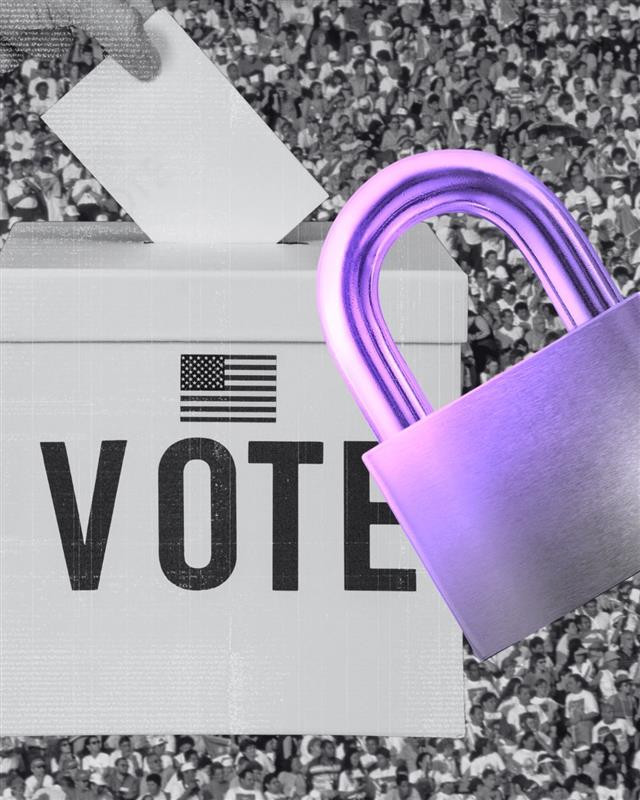The holidays are here, and there are better ways to approach political conversations.
Every family has that person.
Maybe it’s Uncle Ron, who likes to casually drop, “Well, this may not be politically correct, but …” Maybe it’s Aunt Carol, who brings printouts. Or your cousin who watches cable news 24/7 and is fact-checking everyone.
Meanwhile you’re just trying to eat pie in peace.
Political conversations with family feel different than conversations with friends or colleagues or even stranger. Not because the issues are harder, but because the relationships are older. We have a history with our family members. They know exactly which button to push, and somehow, they always push it, whether accidentally or deliberately.
But you don’t have to let a holiday gathering turn into the Jerry Springer Show or an MMA match. Here are a few things that help keep you grounded from my conversation with psychologist Kurt Gray (author of the book Outraged).
1. Remember what’s really happening.
When a stranger argues with you, it’s weird.
When family argues with you, it’s personal — even when it shouldn’t be.
You’re not just reacting to what they said.
You’re reacting to:
- the last 15 times you’ve had this argument
- an off-hand comment from 2011that you remember but they’ve forgotten
- the feeling that they’re not hearing you (because they’re probably not)
Just naming that dynamic — “of course this feels harder, it’s my family” — can take a surprising amount of pressure off the moment.
2. Use the little pause.
You don’t need to leave, you just need one second.
That moment where you feel your body gear up — the quick flash of heat, the tight chest, the urge to rebut immediately — that’s the moment to pause.
Take a breath.
Take a sip of water.
Suddenly remember you left something in the oven.
Your nervous system comes back online, and you get to choose your response instead of just reacting.
3. Ask one simple question.
If someone drops a political grenade, the absolute best thing you can do is ask:
“What makes you say that?”
Not sarcastically. Not as a trap. Genuinely.
It does a few things:
- it slows everything down
- it forces them out of their script
- it gives you a minute to breathe
- and sometimes they realize they don’t actually know why they’re saying the thing they’re saying
It’s shockingly effective, but only if you can express genuine curiosity and listen instead of preparing your counterargument.
4. Make your goal connection, not competition.
Trying to fact-check family in real time almost never works.
Trying to “win” definitely doesn’t.
Better moves sound like:
- “Okay, I hear what you’re saying…”
- “Here’s where I’m coming from…”
- “I think we care about a lot of the same things, even if we disagree on the policy.”
If your goal is connection, these moves get you there. If your goal is to win…well, that’s unlikely and it’s a recipe for stress and conflict.
(In fact, research suggests that presenting people with evidence that their political and religious beliefs are wrong not only doesn’t work, it may cause them to hold the original belief more strongly).
5. Know what you’re actually trying to accomplish.
Holiday dinners are not congressional hearings.
You do not have to fix anyone.
You do not have to remake their worldview between the turkey and the pie.
It’s okay to say:
- “I love you. Let’s agree to disagree.”
- “I appreciate your commitment to [shared value, like people’s wellbeing, safety, or fairness]. We need more of that in the world.”
Sometimes the brave thing is to disengage from the argument and re-engage in the relationship.
6. Take breaks. Seriously.
If you feel that a conversation too far gone to fix or if you’re just tired of listening to arguments and nonsense, give yourself permission to:
- go refill your drink
- go outside for three minutes
- go help in the kitchen
- go check in with someone you haven’t visited with yet
- go pet the dog
Bonus points if you can walk away calmly before the urge to stomp off is overwhelming.
The bottom line
You don’t have to avoid politics. And you don’t have to argue about them either.
What you need is a few tools and the right mindset. Plus a little compassion for yourself and everyone involved.


.jpeg)


.jpg)